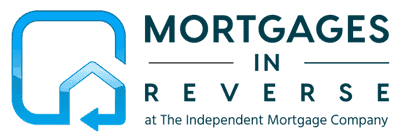As a Vancouver homeowner, you might feel like you're sitting on a gold mine, but did you know you can access that wealth without selling your home? Reverse mortgages offer a unique opportunity for you to convert part of your home's equity into tax-free income – an enticing prospect, particularly for retirees.
Yet, it's not all sunshine and roses; understanding the potential pitfalls is crucial. So, why not explore further how this financial tool could shape your future?
Key Takeaways
- Reverse mortgages provide Vancouver homeowners with a tax-free income source, supplementing retirement funds.
- Tapping into home equity through reverse mortgages allows retirees to benefit from Vancouver's high property values.
- No monthly repayments with reverse mortgages reduce financial risks and ensure homeowners' security in retirement.
- Despite potential risks, with careful consideration and financial advice, reverse mortgages can offer a secure financial future for Vancouver homeowners.
Understanding Reverse Mortgages
To fully appreciate the benefits of a reverse mortgage, you need to understand its intricacies, how it works, and how it differs from traditional mortgages. Unlike conventional loans where you make monthly payments to a lender, a reverse mortgage allows you to borrow against the equity in your home, and it doesn't require monthly payments.
The eligibility criteria for a reverse mortgage is quite straightforward. You must be at least 62 years old, own your home outright or have a low mortgage balance, and live in the home as your primary residence.
Repayment terms are another aspect that sets reverse mortgages apart. They don't require regular monthly payments. Instead, the loan is repaid when the borrower sells the home, moves out permanently, or passes away. The amount you're required to pay back can't exceed the home's sale price, providing a layer of financial protection.
Understanding these fundamental aspects will equip you with the knowledge to make informed decisions about reverse mortgages. They're not for everyone, but when utilized correctly, they can be a powerful financial tool.
Financial Independence in Retirement
Leveraging a reverse mortgage in your golden years can significantly boost your financial independence, making retirement more comfortable and stress-free. A reverse mortgage can supplement your retirement savings, providing a steady stream of income that doesn't affect your government benefits.
- Income Stream: Reverse mortgages provide an additional source of income, supplementing pensions, retirement savings, and social security. This income can cover everyday expenses or unforeseen medical costs.
- Investment Diversification: By using reverse mortgage funds, you can diversify your investments, thereby reducing risk and potentially increasing returns.
- No Monthly Payments: Unlike traditional mortgages, reverse mortgages don't require monthly payments. You won't have to worry about defaulting or losing your home.
- Stay in Your Home: You get to live in your home while enjoying its equity. It's a win-win situation.
However, it's crucial to understand that a reverse mortgage isn't for everyone. You should thoroughly analyze your financial situation, consider your retirement goals, and consult with a financial advisor before deciding. Remember, financial independence in retirement isn't just about having enough money—it's about making smart choices with the resources you have.
Leveraging Home Equity
Considering the benefits of a reverse mortgage, it's clear that your home equity can be a powerful tool in enhancing your financial security in retirement. By leveraging your home equity, you can tap into its inherent value, turning it into a source of funds. This is one of the key equity release benefits that make reverse mortgages a viable option for many retirees.
In Vancouver, where property value appreciation is a common phenomenon, your home's worth could be significantly higher than what you originally paid. This means that your equity – the difference between your home's present value and any outstanding mortgage balance – could be quite substantial. In simple terms, the more your home appreciates, the more equity you build.
A reverse mortgage allows you to unlock this equity without selling your home. You're essentially borrowing against your home's appreciated value, and you don't need to pay it back until you sell your home, move out, or pass away. In the meantime, you can continue living in your home, enjoying the lifestyle you're accustomed to, all while benefiting from the equity you've worked hard to build up over the years.
Tax-Free Income Source
One remarkable benefit of a reverse mortgage is that it offers you a tax-free income, making it an appealing option for many Vancouver homeowners. This characteristic is especially beneficial in retirement planning, where you're looking to maximize your income sources while ageing comfortably.
Here's a four-point breakdown of why the tax-free nature of a reverse mortgage is a boon for you:
- Safeguarded Savings: Since your reverse mortgage income isn't taxed, you're effectively safeguarding your retirement savings. This means more money in your pocket, which can be put towards living expenses, healthcare, or leisure activities.
- Increased Cash Flow: With no taxes deducted, you'll have a higher net income. This boosts your cash flow, allowing you to meet your financial obligations more comfortably.
- Financial Flexibility: A tax-free income provides greater financial flexibility. You can allocate your funds where they're most needed without worrying about tax implications.
- Enhanced Retirement Planning: Finally, the tax-free aspect of a reverse mortgage can enhance your retirement planning strategy. It provides a reliable income source that won't be reduced by taxes, thereby ensuring you can age comfortably.
Harnessing the power of a reverse mortgage for its tax-free benefits is a smart move for any homeowner.
Averting Risks With Reverse Mortgages
While reaping the benefits of a reverse mortgage, it's equally important to understand and mitigate the potential risks associated with this financial tool. Risk management is key. You need to be aware of the pitfalls and how to avoid them.
Unlike a traditional mortgage, a reverse mortgage doesn't require monthly repayments. However, it can lead to a significant decline in home equity over time. If you want to leave your property to your heirs, they might have to sell the house to repay the loan.
How can you avert these risks? First, consider different options. A reverse mortgage isn't your only choice. You could sell your home and downsize, or rent out a portion of it.
Second, understand the mortgage regulations. The Canadian government has implemented measures to protect homeowners, such as caps on the loan amount. Make sure you're familiar with these rules.
Lastly, discuss your plans with a financial advisor. They can provide valuable insight and help you make the best decision. Keep in mind, a reverse mortgage is a big commitment and should be carefully considered. It's crucial to mitigate the risks to ensure a secure financial future.
Frequently Asked Questions
What Is the Process to Apply for a Reverse Mortgage in Vancouver?
To apply for a reverse mortgage in Vancouver, you'll first need to meet certain application requirements. This typically includes being a homeowner over 55 with substantial equity in your home.
Once approved, you don't need to worry about loan repayment until you sell your home or pass away. It's a detailed process, but advisors can guide you through each step to ensure you're making the best decision for your financial situation.
How Will the Value of My Vancouver Home Be Assessed for a Reverse Mortgage?
Your Vancouver home's value for a reverse mortgage is assessed through a professional appraisal. Appraisal factors include the home's age, condition, location, and comparable sales in your neighborhood.
Market influence also plays a significant role, as current real estate trends in Vancouver directly impact your home's value.
You'll need to keep these factors in mind when considering a reverse mortgage.
What Happens to My Reverse Mortgage if I Decide to Sell My Home?
If you decide to sell your home, you'll need to pay off your reverse mortgage. Selling implications include dealing with any potential prepayment penalties. However, most reverse mortgages don't have these penalties.
The sale proceeds will repay the loan and any remaining equity goes to you. It's important to understand the ins and outs of your agreement to avoid surprises, ensuring a smooth transition during your home-selling journey.
Can I Apply for a Reverse Mortgage if I Have an Existing Mortgage on My Vancouver Home?
Yes, you can apply for a reverse mortgage even if you've an existing mortgage on your Vancouver home. However, you must meet the mortgage eligibility criteria.
Typically, the reverse mortgage funds are first used to pay off your existing mortgage.
This is beneficial in the Vancouver housing market, as it can free up cash flow and allow you to utilize your home's equity while still living in it.
How Can a Reverse Mortgage Impact My Eligibility for Government Benefits or Assistance?
You're wondering how a reverse mortgage could affect your government benefit eligibility. It's crucial to understand that a reverse mortgage can have benefit implications.
In some cases, the extra income you receive might impact your assistance eligibility, particularly for need-based programs. It's advisable to consult with a financial advisor or the specific assistance program to ensure you fully understand the potential impacts before deciding on a reverse mortgage.

